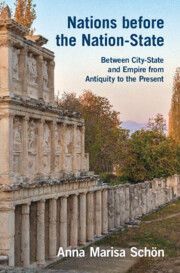Book contents
- Nations before the Nation-State
- Nations before the Nation-State
- Copyright page
- Contents
- Acknowledgments
- 1 Introduction
- 2 What Is a Nation? A Brief Historiography of Theories of the Nation
- 3 A Tale of Two Fatherlands
- 4 Post-Roman Transitions
- 5 Medieval Imperialism
- 6 Nationality and the Medieval “State” in France
- 7 The Nation at a Crossroads
- 8 Conclusions
- Bibliography
- Index
- References
Bibliography
Published online by Cambridge University Press: 14 November 2024
- Nations before the Nation-State
- Nations before the Nation-State
- Copyright page
- Contents
- Acknowledgments
- 1 Introduction
- 2 What Is a Nation? A Brief Historiography of Theories of the Nation
- 3 A Tale of Two Fatherlands
- 4 Post-Roman Transitions
- 5 Medieval Imperialism
- 6 Nationality and the Medieval “State” in France
- 7 The Nation at a Crossroads
- 8 Conclusions
- Bibliography
- Index
- References
- Type
- Chapter
- Information
- Nations before the Nation-StateBetween City-State and Empire from Antiquity to the Present, pp. 199 - 218Publisher: Cambridge University PressPrint publication year: 2024

